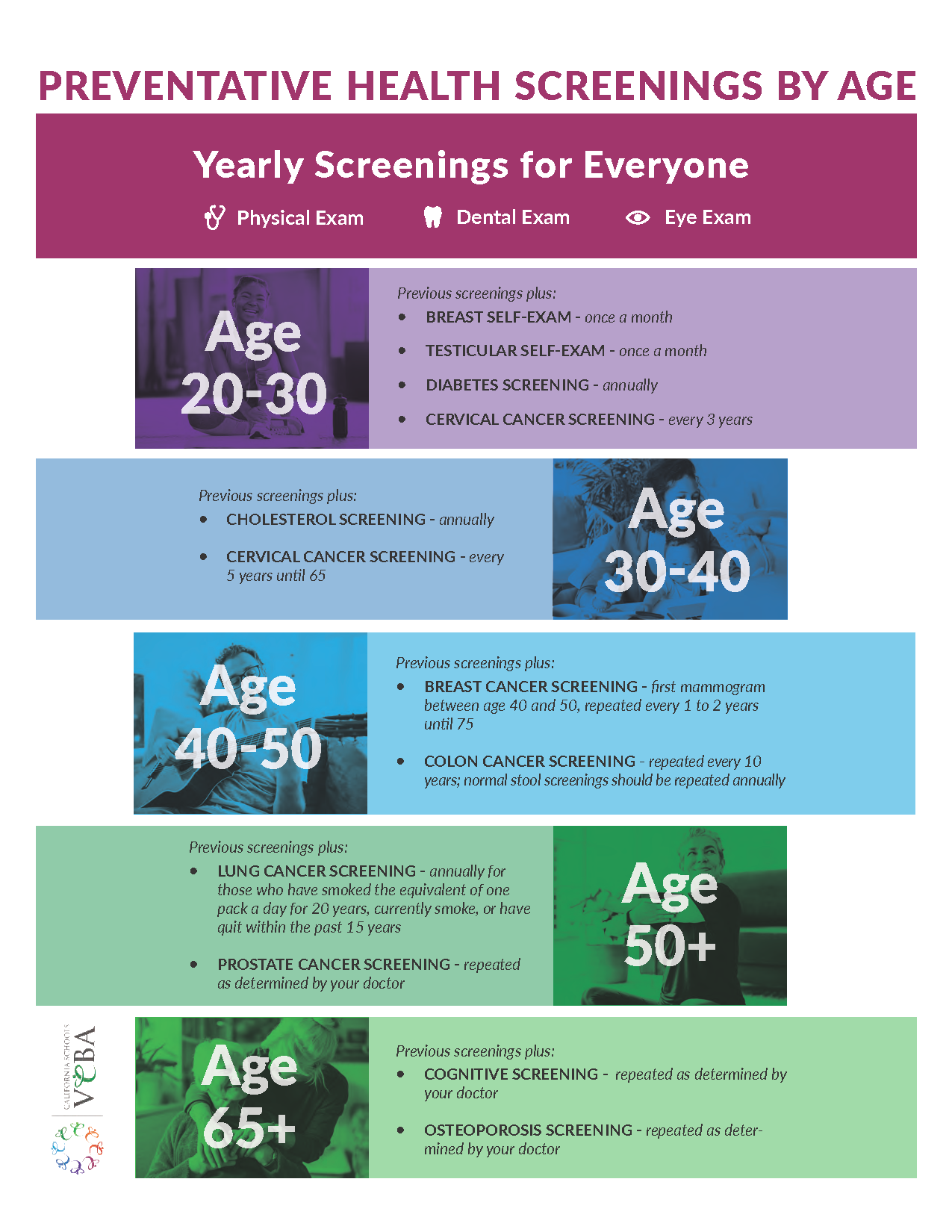Typically when you go to the doctor it’s because you’re sick or something just doesn’t feel quite right. But, did you know that one of the best ways to support your health journey is prioritizing preventative care? So, what is preventative care?
Preventative care is the health efforts you take to stay healthy. This could be following a healthy diet, prioritizing your mental health, and making sure you get plenty of movement throughout your day. But preventative care also includes staying up to date on your routine/annual check-ups, immunizations, and screenings. Preventive care visits are important for early detection and allow you and your doctor to work together to help you reach your personal health and wellness goals.
During your preventive care appointment, your doctor will determine what tests or health screenings are right for you based on your age, gender, health status, and family history.
Here’s what’s typically covered:
Physical Exams
During a physical exam, your doctor looks at, listens to, and gently presses on your body to help determine the cause of symptoms, what other conditions may be present, and what medical tests may be needed. You can also discuss any concerns you may have, your medical history, and the medications you take.
Immunizations
An immunization, also called a vaccination, is the best way to help protect you from getting certain diseases that can be spread to other people (infectious diseases). The medicine causes your body to make antibodies that can then recognize and fight the illness if you are later exposed to it.
Some common immunizations include Flu and tetanus shots, MMR vaccination, and Hepatitis A and B vaccinations.
Screenings
Screening tests help your doctor look for certain diseases before any symptoms appear. Often, the earlier a disease is diagnosed, the more likely it is that it can be cured or successfully managed. When you treat a disease early, you may be able to prevent or delay problems from the disease.
Regular screening tests and checkups can help you stay healthy. Talk with your doctor whenever you have concerns about your health.
Use the infographic below as a guide to what screenings you might be due for.

Appointment Scheduling Tips
Unlike seeing the doctor when you’re ill, which requires a copayment or deductible, preventive care visits are available at no additional charge and focus on evaluating your health when you are symptom-free. However, make sure you schedule your preventive care appointment with an in-network provider.
To get the most out of your visit, follow these tips:
Before Your Appointment:
- Make a List: Gather a list of your current medications, vitamins, and supplements and their dosages. Bring this with you to review with your provider.
- Write it Down: Prepare to talk about any concerns or questions you have.
- Bring Your Insurance Card: You can download your insurance card and save it to your MyVEBA app for easy access.
During Your Appointment:
- Arrive Early: Try to arrive 10-15 minutes ahead of your scheduled time to update any annual paperwork.
- Dress Comfortably: Your height, weight, and blood pressure will usually be checked at the beginning of your appointment. Wear a shirt with short or loose-fitting, rollable sleeves for comfort during the blood pressure screening.
- Use Your List: Be prepared to answer questions about your medications and supplements, past health history, immunization history, and general health, including any symptoms you’ve been experiencing or other recent health changes.
- Speak Your Mind: If you need clarification or don’t agree with the diagnosis or treatment path your provider recommends, don’t be afraid to speak up. Your time and health are valuable!
After Your Appointment:
- Follow Through: Take the medications your doctor has prescribed to you and make the necessary follow-up appointments or additional testing/scans/screenings they have recommended.
- Speak Up: If you notice new symptoms or problems, let your doctor know right away.
- Get a Second Opinion: If you were given a diagnosis you are unsure about and want to get a second opinion before you make a major medical decision, our partnership with Teladoc Medical Experts is where VEBA members can access a second opinion from the world’s most well-respected doctors and specialists at no cost to them.
Preventive care is one of the most proactive, holistic approaches you can take for your health. It allows not just for early detection of conditions that may be unnoticeable by patients themselves, but it can also improve patients’ well-being and quality of life.
Thank you to our content partners at Sharp HealthCare and Healthwise.
Need help to schedule an appointment or have questions about your medical coverage? Contact VEBA Advocacy here or call 888-276-0250.









